Special Report
Biggest Product Flops of the Year
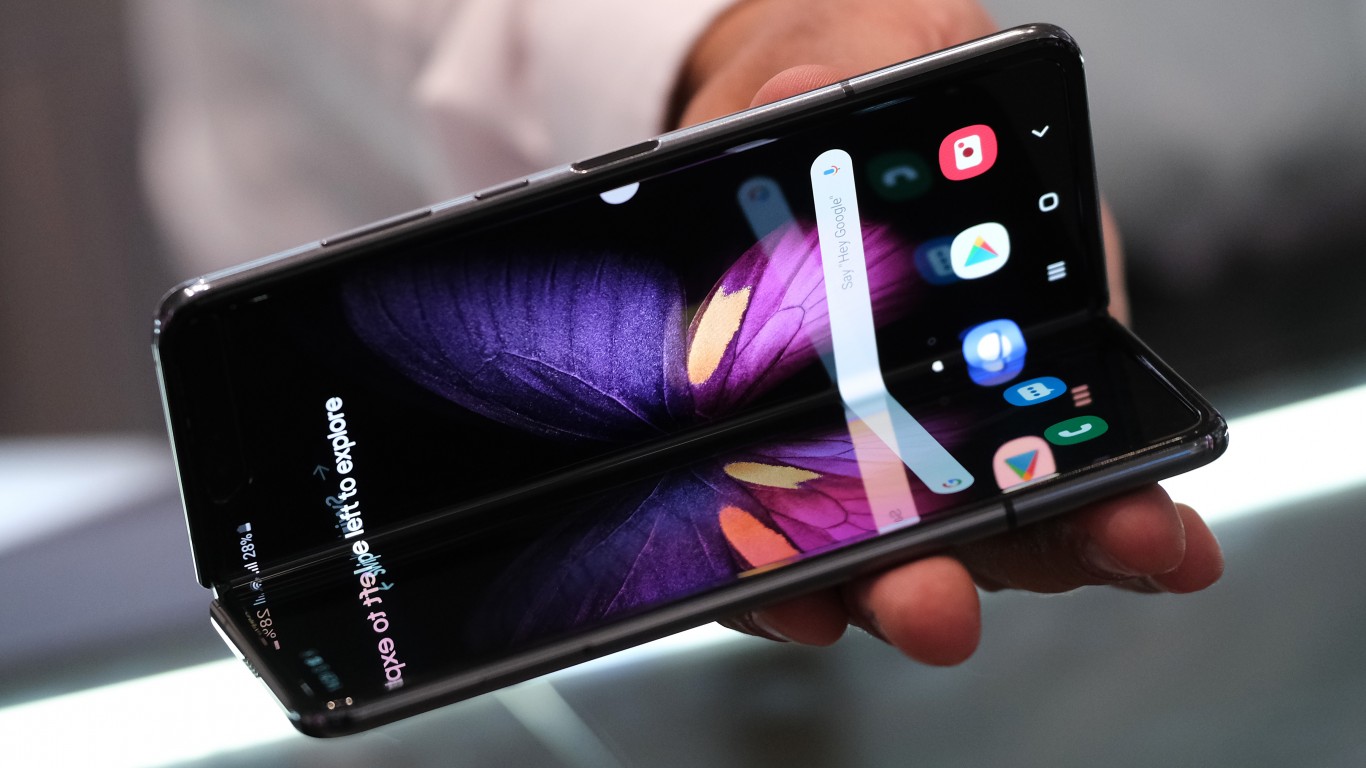
Published:
Last Updated:

Companies invest time, and energy on research, development, and advertising before launching a product in the fiercely competitive U.S. market. All of this work does not always pay off. Some products end up being huge flops, costing their companies millions of dollars.
A product can fail for many reasons. Bad reviews can irreparably damage a product’s reputation, and its sales. Often, competition with a superior product — or at least one that is perceived to be superior — can doom a launch.
To determine the biggest product flops of the year, 24/7 Wall St. reviewed media reports and industry publications such as TechCrunch about consumer products that were critically panned, underperformed relative to their manufacturers’ expectations, or both in 2019. We considered launches in the technology, entertainment, and pharmaceutical industries, as well as others.
Many of the products on this list failed because they did not work as advertised. Whether it was bugs in a video game, shoddy manufacturing on a tech product, or a medication that did not seem to cure the affliction for which it was made, the products either fell out of favor or never caught on in the first place. These are the most outrageous product claims of all time.
Most companies can survive a failed product or two. Almost all of the companies on this list are massive multi-billion dollar corporations that have enough income from other sources that one big flop would not do much to hurt their bottom line. But for some of these companies, the failure was so catastrophic that it led to layoffs, financial ruin, and even dissolution of the company. These are the brands that disappeared over the last decade.
Click here to see the biggest product flops of the year
1. WeWork IPO
> Company: WeWork
The office space-sharing company has been roiled by tumult since it filed to become a public company in August. Since then, the company slashed its valuation from $47 billion to $10 billion, removed high-living co-founder Adam Neumann as chief executive officer, and postponed its IPO indefinitely. Investors were skittish about investing in WeWork because of its losses and questions about corporate governance. In October, Softbank, its largest investor, took over the company and put the value of WeWork at $5 billion. WeWork laid off 2,400 employees the following month — roughly one-fifth of its workforce.
[in-text-ad]

2. Major Alzheimer’s drug trials
> Company: Various
Hopes for a breakthrough treatment for Alzheimer’s disease floundered earlier this year. Cambridge, Massachusetts-based biotechnology company Biogen Inc. and its partner, Japanese pharmaceutical company Eisai Co., announced in March that they were stopping two late-stage phase three clinical trials of the drug aducanumab, considered the most promising treatment for Alzheimer’s disease.
The companies decided to halt the trials based on an analysis from an independent data monitoring committee that determined the trials were not likely to meet their primary goals upon completion. The decision was not based on safety concerns. According to the Alzheimer’s Association, Alzheimer’s disease affects 5.8 million Americans today and is the sixth-leading cause of death in the United States.

3. Google+
> Company: Google
Google’s attempt to create its own social network, Google+, was such a flop that even its shutdown was bungled. After it debuted in 2011, Google+ was mocked as a knockoff version of Facebook, and consumers were hesitant to use it. Google tried to boost usership by requiring people to make Google+ accounts if they wanted to sign into other Google-owned properties like Gmail and YouTube, but the effort was unsuccessful.
Initially, Google+ was set to be shut down in August 2019, but a bug found in its API in November of 2018 exposed the personal information of over 50 million users to certain apps, even if users set their accounts to private. As a result, Google accelerated the sunsetting of the social media platform to April 2019.
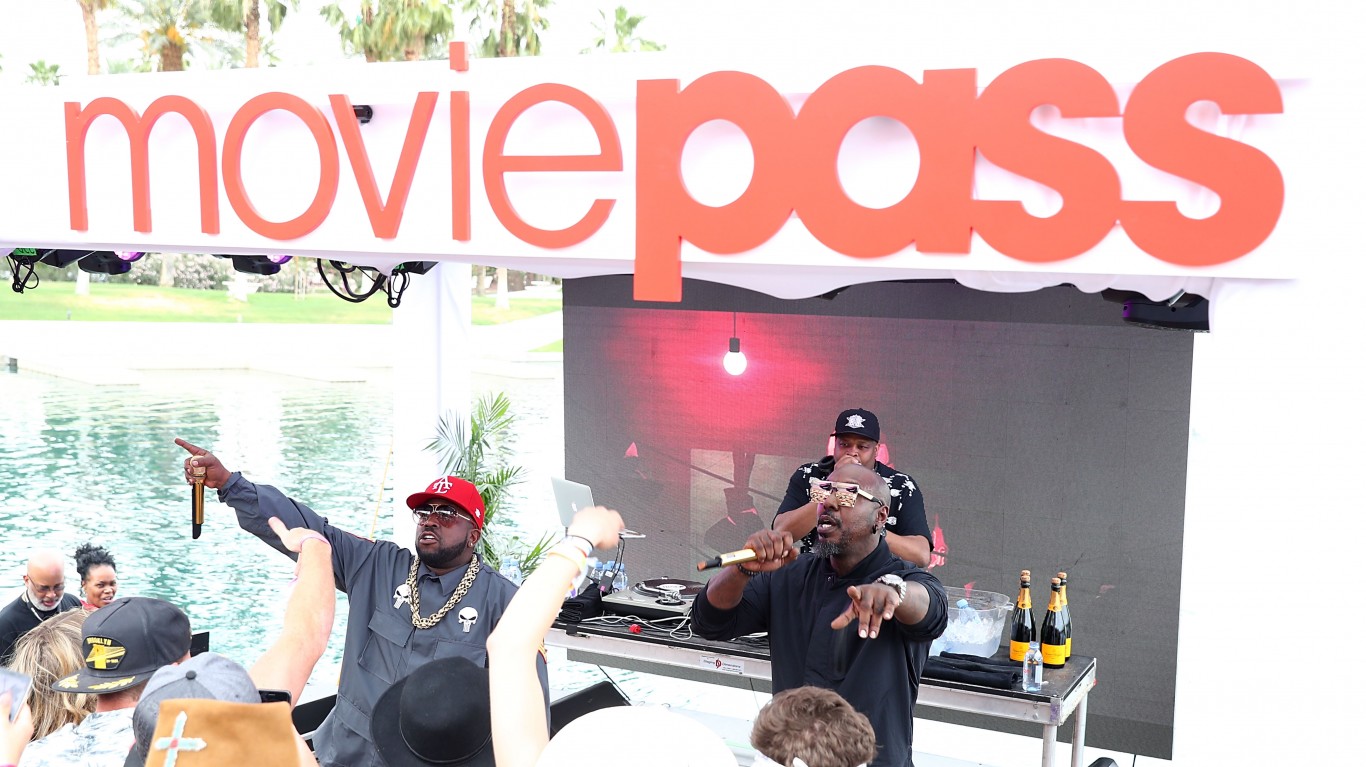
4. Moviepass
> Company: MoviePass
MoviePass allowed users to pay a monthly fee to see as many movies as they wanted in theaters. According to MoviePass cofounder Stacy Spikes, its parent company Helios and Matheson Analytics became focused on making the service $9.95 per month, even though that was supposed to be a one-time discount to attract customers.
That price point was simply too low, and Helios and Matheson began bleeding cash. The company began imposing restrictions and blacking out certain films. MoviePass also gained a reputation for poor customer service, driving away users. Finally, in September 2019, MoviePass ceased operations. At one point in 2018, Helios and Matheson stock was worth over $2,000 per share. Now it is worth a fraction of a cent.
[in-text-ad-2]
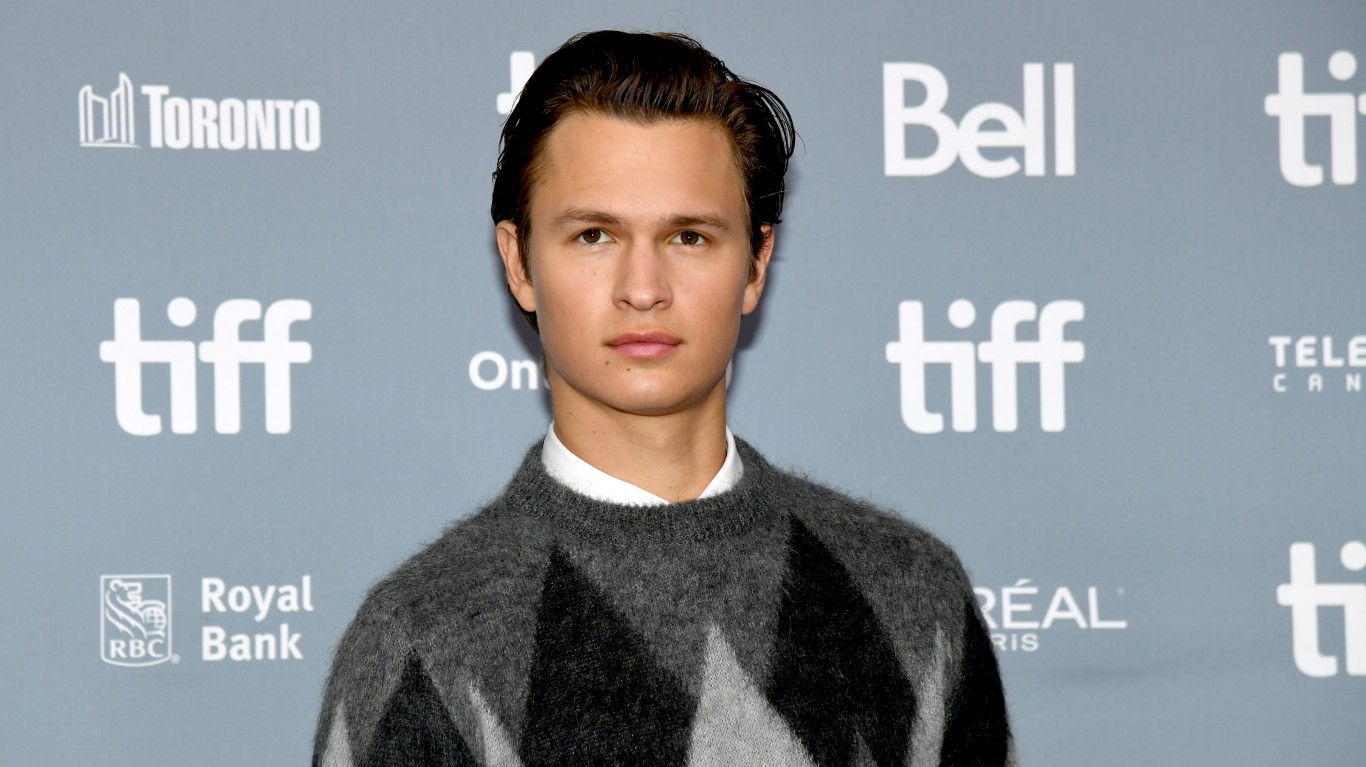
5. The Goldfinch
> Company: Warner Bros. Pictures
“The Goldfinch” was a 2019 film adaptation of a Pulitzer Prize-winning novel of the same name, which tells the story of a boy whose life is altered by a bombing at an art museum and the painting he steals in the aftermath. Despite the quality of the source material, the film was a critical and commercial flop.
The film, starring Ansel Elgort and Nicole Kidman, was panned by critics, receiving a 24% Freshness rating on Rotten Tomatoes. “The Goldfinch” grossed less than $10 million worldwide, though it cost an estimated $40 million to $45 million to make. On average, the film was booted from theaters in less than three weeks.
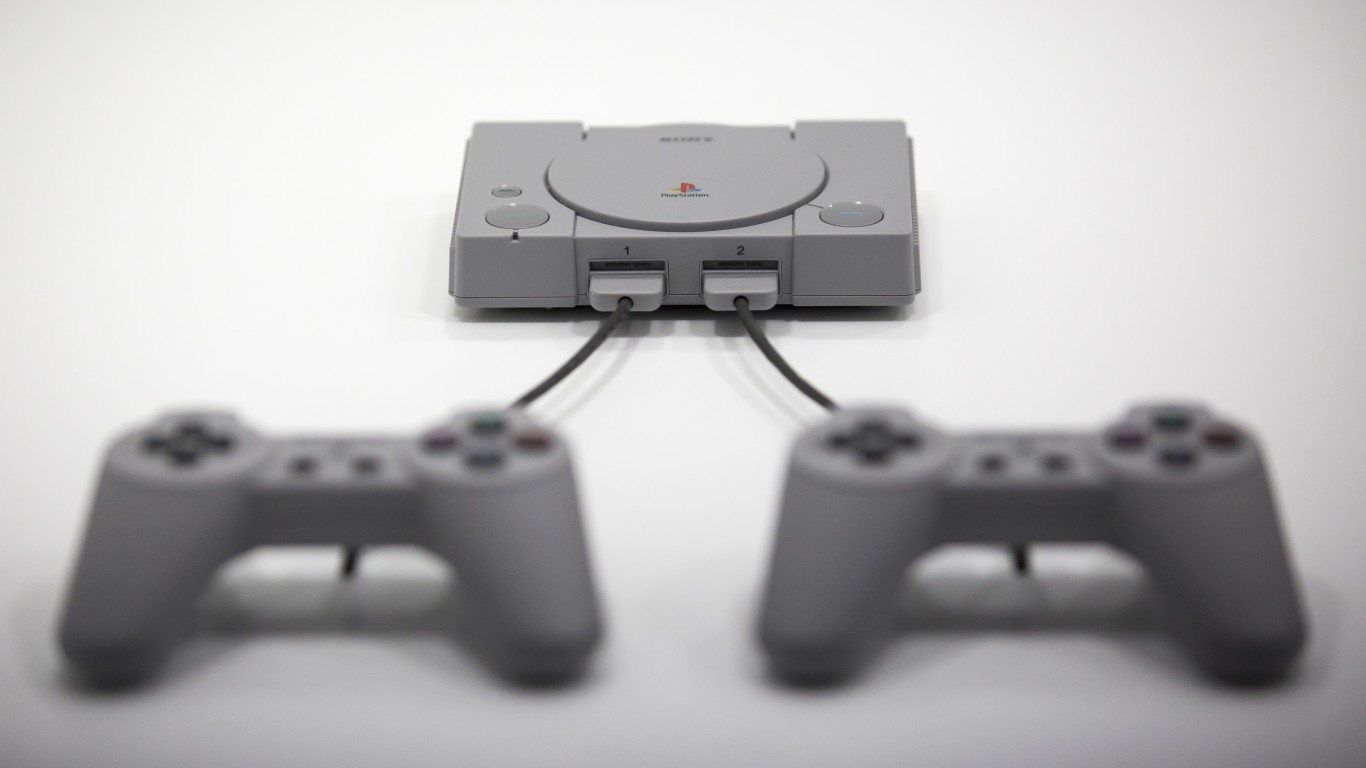
6. PlayStation Classic
> Company: Sony Corporation
Sony tried tapping into nostalgia for old gaming systems, and attempted to replicate the success of Nintendo’s NES Classic and SNES Classic mini-consoles. However, PlayStation Classic, released in December of 2018, turned into a product blunder. The system was released with limited game options, and classic games such as Gran Turismo and Tomb Raider were not available.
Also, many of the games that were released were only available in PAL versions, a television standard not usually used used in the United States.
[in-text-ad]
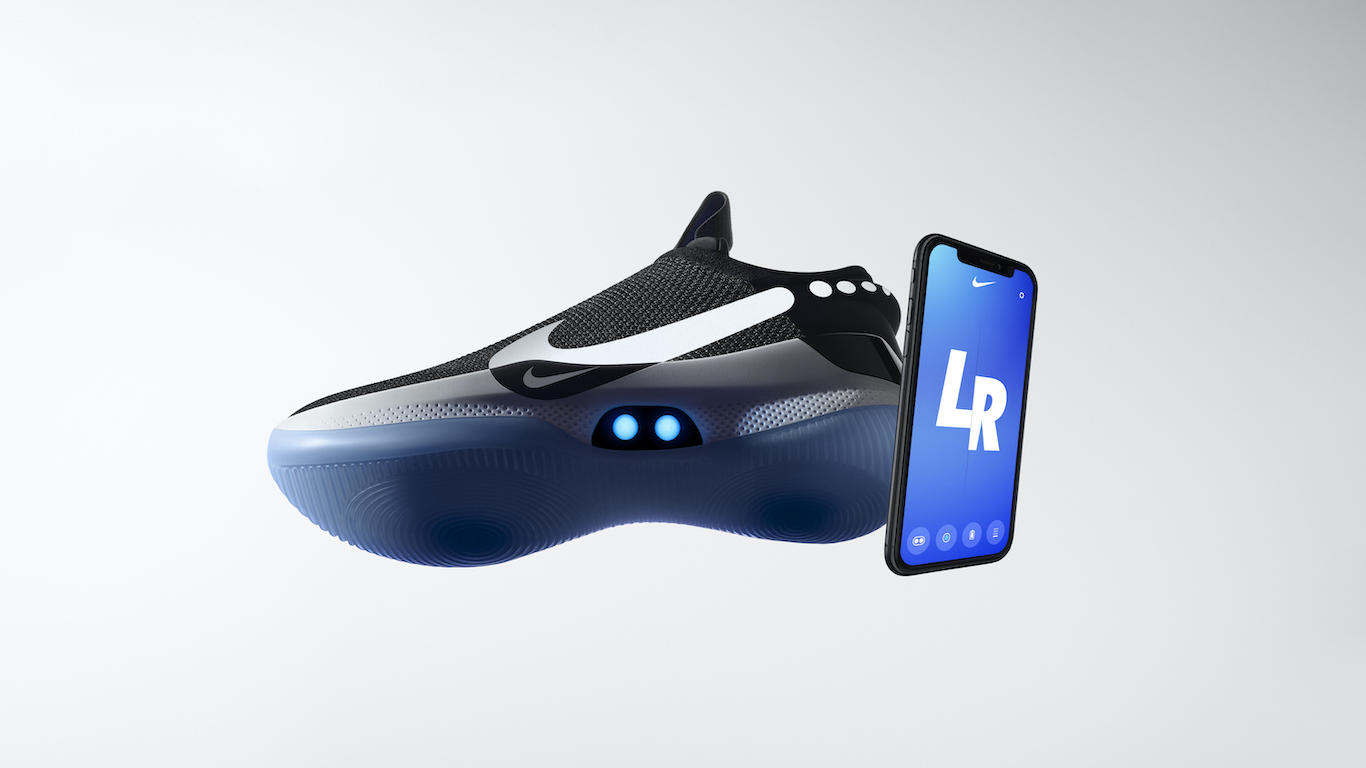
7. Nike ‘Adapt BB’ shoes
> Company: Nike
A pair of $350 sneakers made by Nike that feature an app that self-ties the footwear had customers tied up in knots in February. That’s because the app was defective for a number of users and failed to pair up with the sneakers. Lacking manual laces, the shoes were effectively unwearable for several weeks until Nike fixed the app. Customers unleashed complaints about the app online, garnering the Nike Adapt app a rating of 2.4 out of 5 stars on Google Play at one point. Some reviewers complained that the app would sync with one sneaker but not the other. Ideally, the sneakers were supposed to allow the wearer to adjust the tightness of the laces and customize the lights on the shoe.
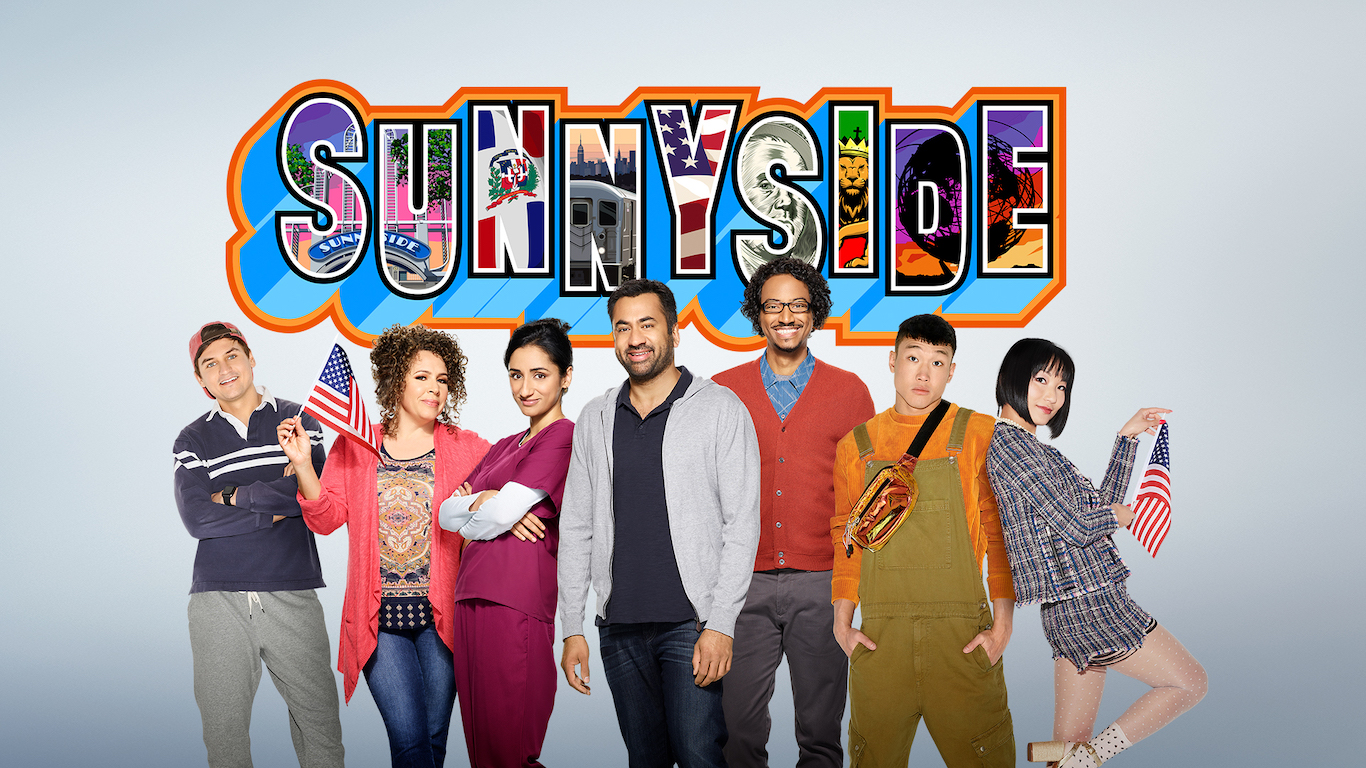
8. NBC’s Sunnyside
> Company: NBC
In 2019, NBC debuted “Sunnyside,” a sitcom about people from different backgrounds searching for the American Dream, named for the Queens neighborhood in which it is set. Audiences were completely uninterested in the show from the start. “Sunnyside” had a viewership rating of 0.4 in its pilot episode — the lowest rating of any scripted series’ debut on the four major U.S. TV networks (ABC, NBC, CBS, Fox) in history. After just four episodes, NBC pulled the show from its lineup, posting the show’s remaining episodes on its online and streaming services.
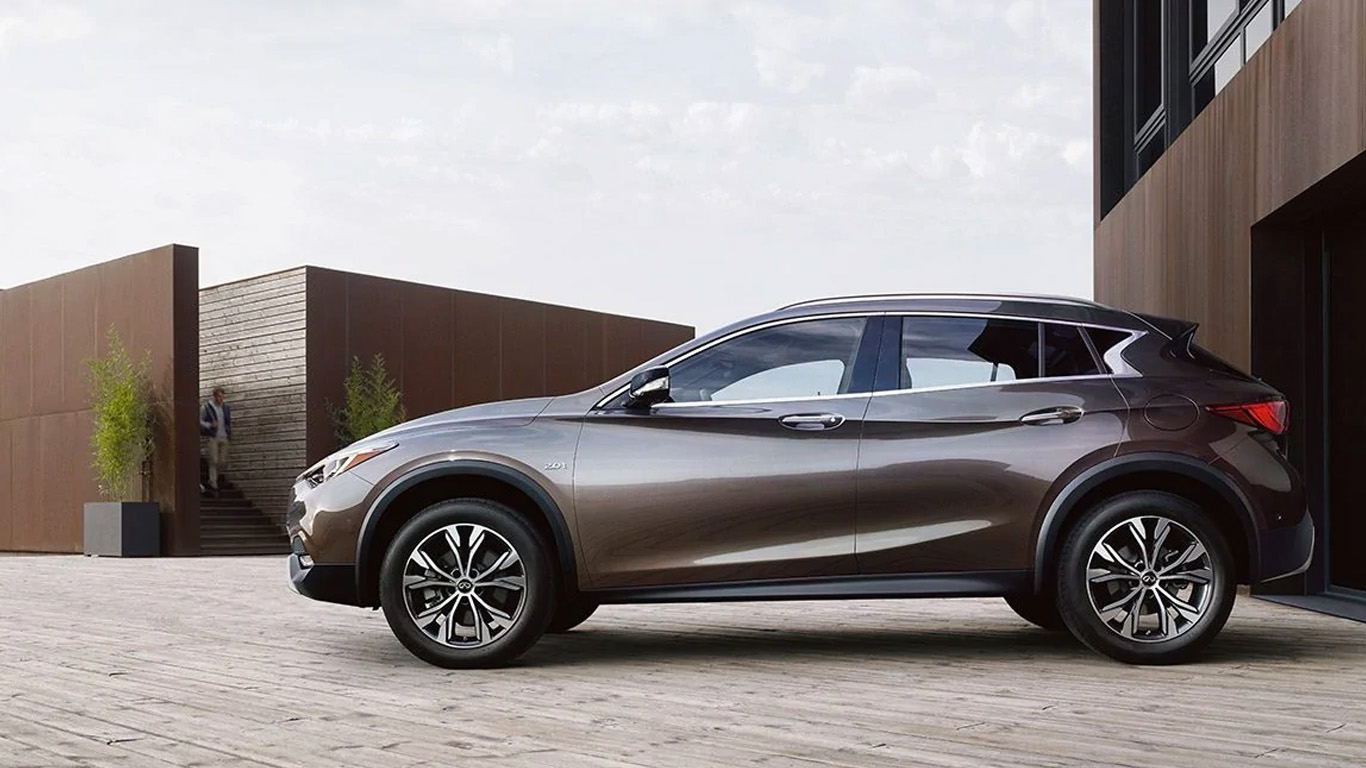
9. Infiniti QX30
> Company: Infiniti
As SUVs and crossovers have become the most popular vehicle type in America, companies have rushed to cash in on the fad. Infiniti debuted its entry into the crossover market with the QX30 in 2016. Over the last year, however, interest in the QX30 has fallen off sharply, with sales declining by more than 50% from 2018 to 2019, down to less than 3,200 units as of November. Infiniti’s president acknowledged the crossover is “not a very successful product” and said the QX30 does not have a future at the company.
[in-text-ad-2]
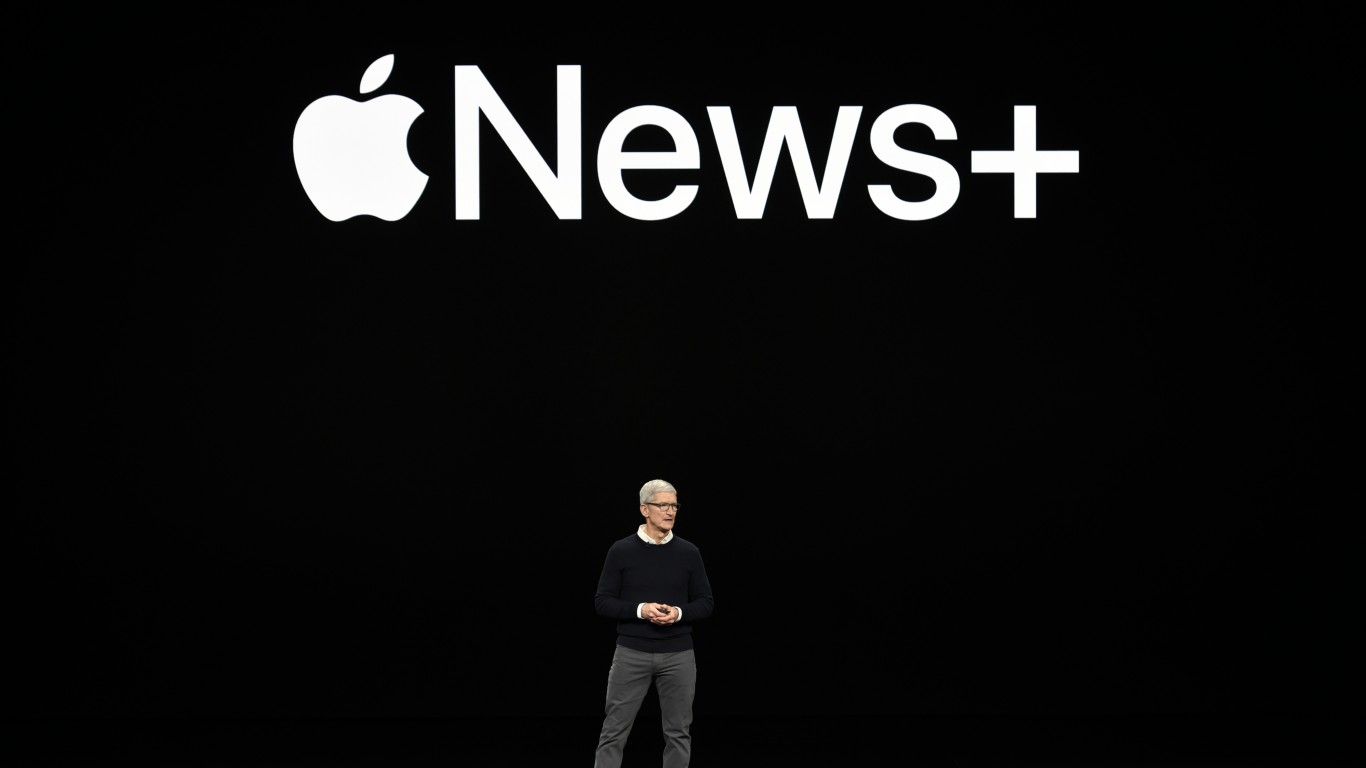
10. Apple News+
> Company: Apple
Apple has built a solid brand based on winning products such as Macintosh computer, the iPhone, and the iPad, but not all products can be winners. A case in point is Apple’s foray into paid news, an app called Apple News+. The venture launched in March and signed up 200,000 subscribers in two days. Apple told potential customers that they could read more than 300 publications for $9.99 a month. However, enthusiasm waned and subscriber growth has disappointed Apple’s publishing partners. According to news reports, Apple is considering bundling the service with its Apple Music and Apple TV.
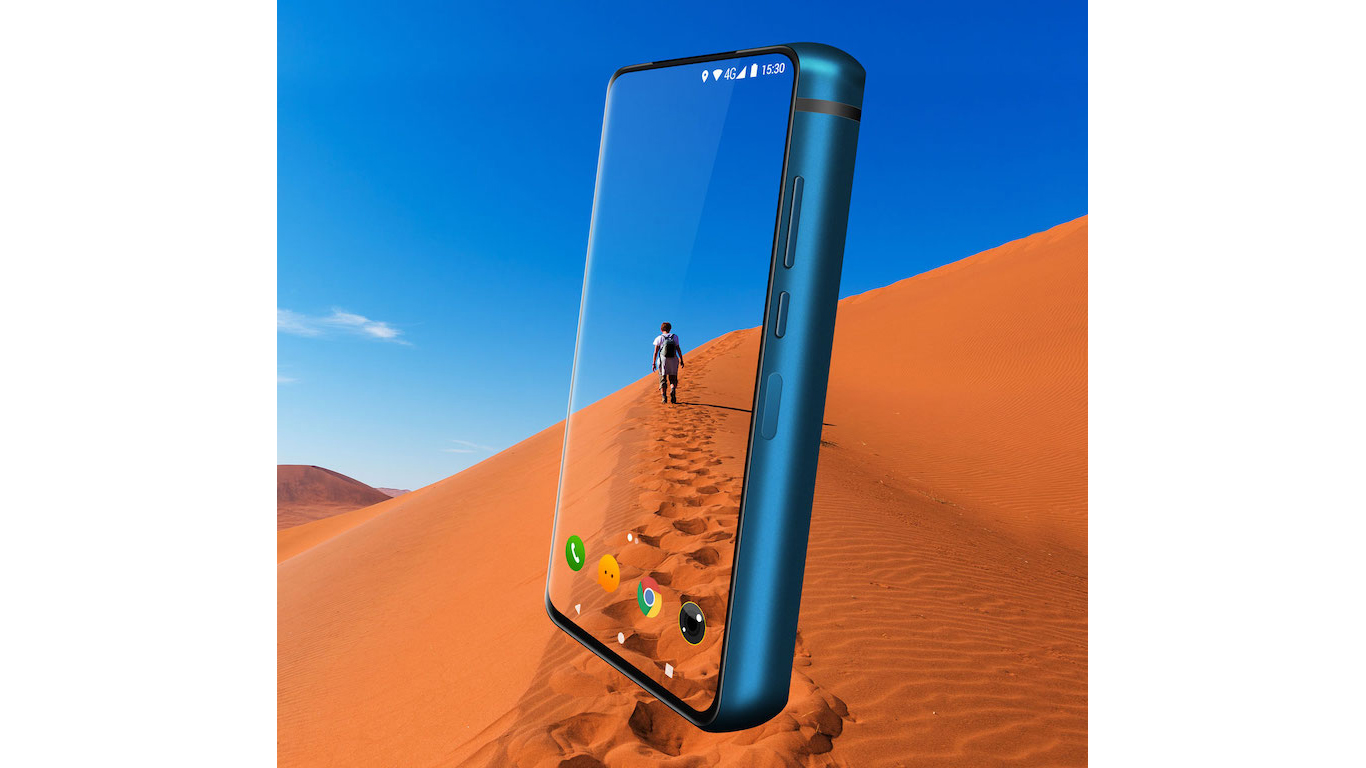
11. Energizer P18K
> Company: Energizer, Avenir Telecom
The first problem with the Energizer PowerMax P18K Pop phone was obvious — it was three times as thick as the iPhone X because of its large battery. While it’s true smartphone users want longer battery life, they don’t want to carry around something that cumbersome.
The French telecommunications company Avenir Telecom displayed the phone at the Mobile World Congress trade show in Barcelona in February and licensed the Energizer brand to sell the device. The phone was advertised to hold a charge for 50 days.
Investors did not share the enthusiasm, however. Energizer, best known for making batteries, and Avenir Telecom hoped to raise $1.2 million in funding from a campaign on crowdfunding site Indiegogo, but raised just $15,005, or just over 1% of the investment goal.
[in-text-ad]
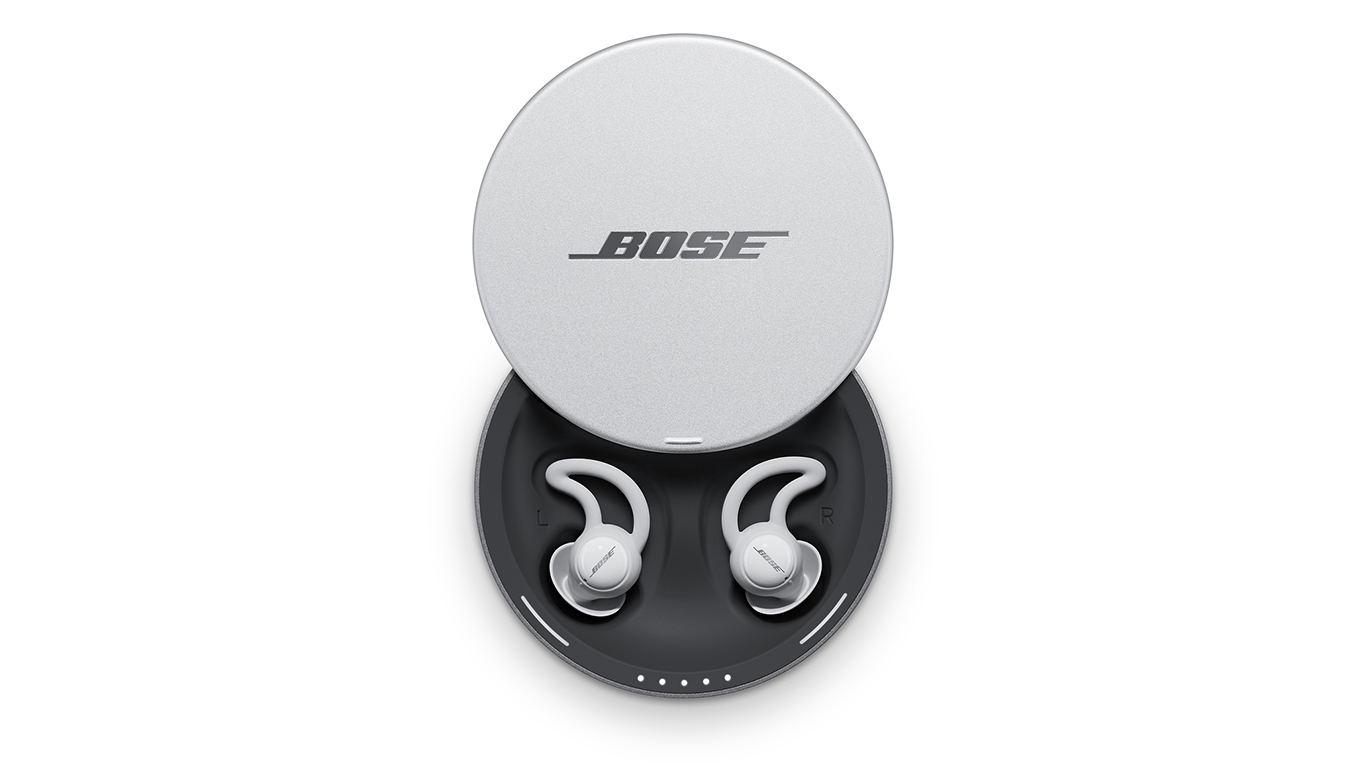
12. Bose Sleepbuds
> Company: Bose
Many of the products that flopped in 2019 misfired because they failed to anticipate the market or did not catch on with consumers. This was not the case with Bose Sleepbuds. The Sleepbuds were discontinued because, in many cases, they simply did not work. The $250 headphones were designed to be worn to bed and play soothing sounds to help people fall asleep. They were rolled out in 2018, and Bose soon began receiving complaints that the product would switch off in the middle of the night or fail to fully charge. The Sleepbuds’ battery issues were so pervasive that Bose opted to discontinue the product altogether and issue refunds to customers.
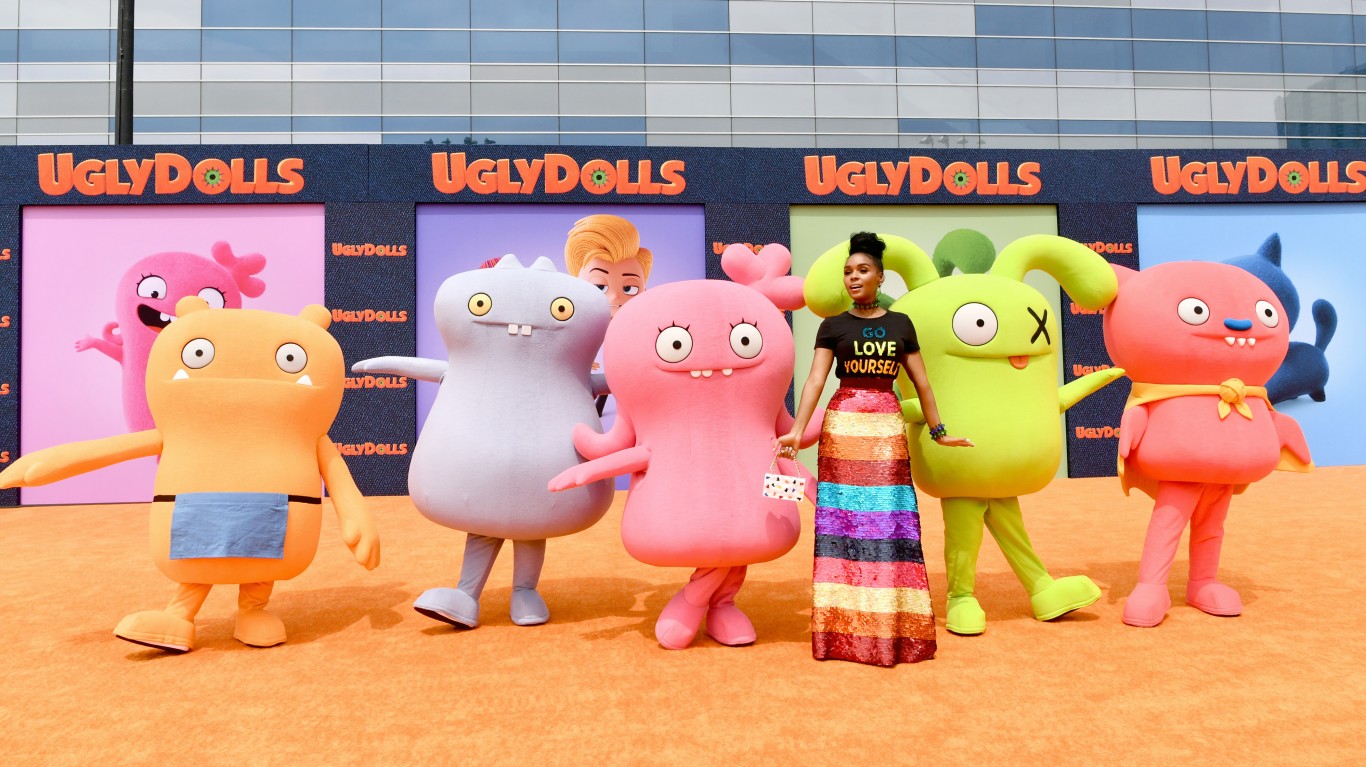
13. UglyDolls
> Company: STX Entertainment
STX Entertainment’s animated “UglyDolls” hit movie screens on May 3, 2019. Based on the plush toy brand of the same name, the UglyDolls film was unable to replicate the success of other toy-based franchises like “The Lego Movie” or “Transformers.” To date, the film has grossed just $28.1 million on a $45.0 million budget, making it one of the biggest flops of the year.
One factor contributing to the film’s low box office was poor critical reception. “UglyDolls” currently holds a 28% Freshness rating on Rotten Tomatoes, and it was described by one Hollywood Reporter critic as an “imbecilic eyesore that could lay claim to being one of the worst movies ever made if it was worth such hyperbole.” The film was also released just one week after “Avengers: Endgame” — the highest grossing film ever — and the proximity may have also hurt its box office performance.
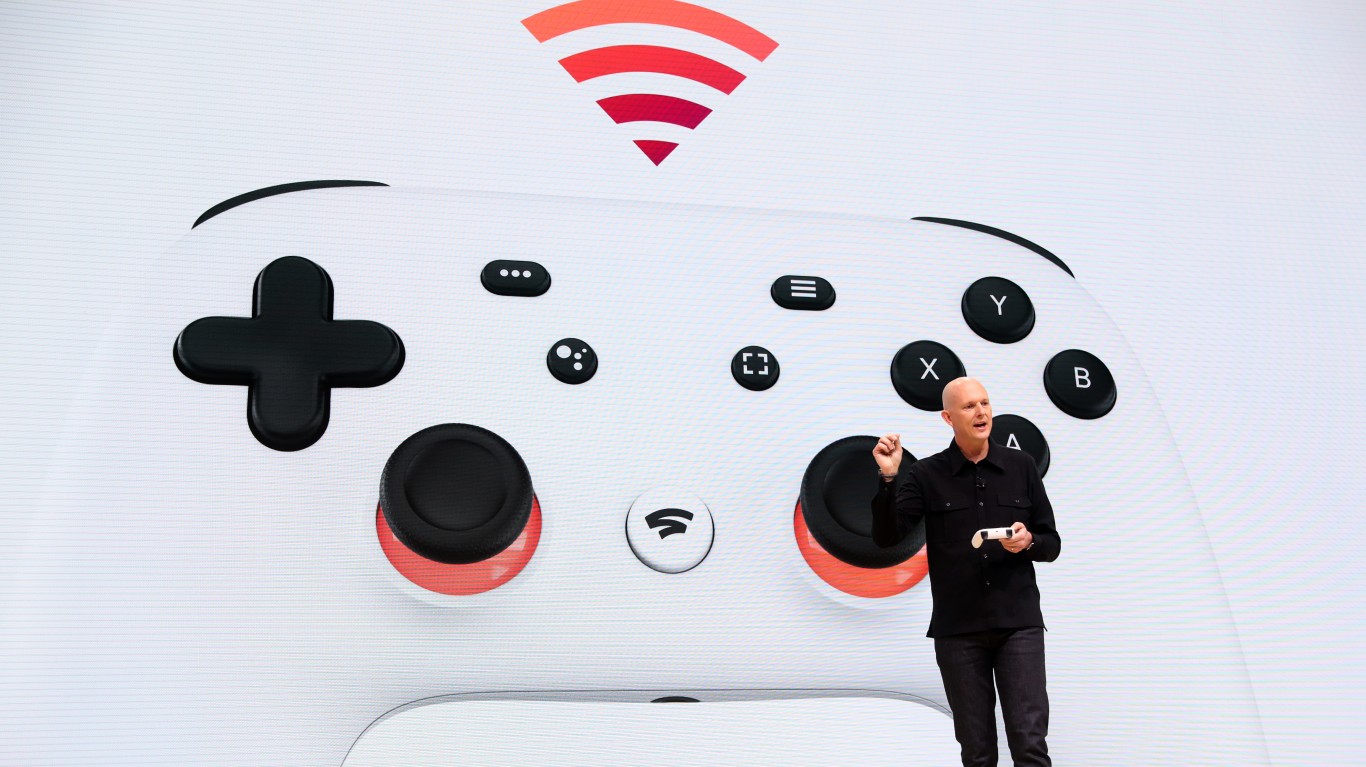
14. Google Stadia
> Company: Google
Google Stadia, Google’s entry into the cloud-gaming sector, was released on Nov. 19, 2019. The service offers users the ability to stream a suite of about three dozen video games on desktops, smartphones, tablets, smart TVs, and Chromecast in 4K at 60 frames per second.
While it has been just a month since Stadia’s release, initial reactions to the product launch have been largely negative, and many news outlets have declared it a flop. A source close to Google revealed that pre-orders for the service were below expectations, and many users have reported instances of lagging graphics and low screen resolution. Of the 51 reviews of the service currently on review aggregator Metacritic, 16% are positive, 55% are mixed, and 29% are negative.
[in-text-ad-2]

15. Samsung Galaxy Fold
> Company: Samsung
Samsung debuted a phone unlike anything else with the Galaxy Fold — a phone with a double wide screen that folds in the middle like a book. While it is a novel idea, reviewers noted that the execution was off. Tech journalists reported screen malfunctions and pointed out that the device was very fragile and susceptible to damage. These issues, coupled with the $2,000 and up price tag, have likely hurt sales and may be stemming Samsung’s sales expectations. While Samsung has not released exact sales figures for the Galaxy Fold, the company reportedly wanted to sell 10 million foldable phones in 2020, It now dropped its sales expectations to 6 million, according to Korean outlet ETNews.

16. Gucci jumper
> Company: Gucci
Italian fashion house Gucci was forced to withdraw a black knit polo neck jumper from stores after social media erupted, claiming the apparel item resembled blackface. The jumper, which was part of the company’s Fall Winter 2018 line, covered the bottom half of the face and had a large red lip outline around a cutout over the mouth.
What made the flop worse was that it occurred in February, which is Black History Month in the United States. Gucci apologized and said it would remove the $890 jumper from its website.
[in-text-ad]

17. Anthem
> Company: Electronic Arts
Creating a new video game is always a huge gamble, considering all the work that must go into designing and developing them. “Anthem,” a futuristic shooter game from BioWare and Electronic Arts and one of the best selling games of the year, made $100 million in revenue but was still labeled as a disappointment. EA management said, without providing specifics, that “Anthem” missed its total sales target of 5 million to 6 million units in the first month or so. It was also expected to take in more money from in game microtransactions than it did. The game was hampered by lukewarm reviews, flawed in-game systems, and reports of the game causing consoles to crash.
Credit card companies are pulling out all the stops, with the issuers are offering insane travel rewards and perks.
We’re talking huge sign-up bonuses, points on every purchase, and benefits like lounge access, travel credits, and free hotel nights. For travelers, these rewards can add up to thousands of dollars in flights, upgrades, and luxury experiences every year.
It’s like getting paid to travel — and it’s available to qualified borrowers who know where to look.
We’ve rounded up some of the best travel credit cards on the market. Click here to see the list. Don’t miss these offers — they won’t be this good forever.
Thank you for reading! Have some feedback for us?
Contact the 24/7 Wall St. editorial team.